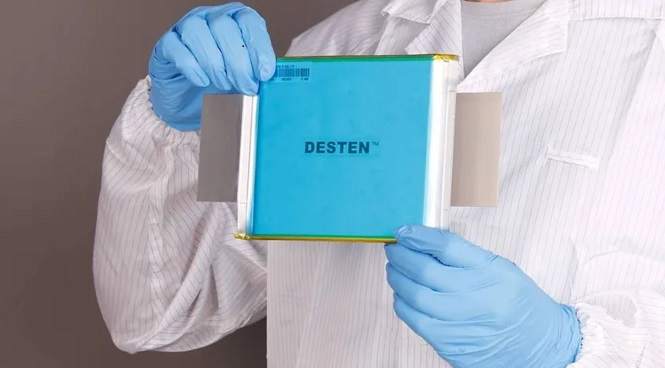A new LFP battery claims to have ultra-fast recharging with rates of 6C.
Lithium Ferrophosphate (LFP) batteries have become an excellent alternative for their evolution in energy density, which is added to their low cost and absence of components such as nickel or cobalt. But these fail to offer the performance in charging power of the nickel-rich ones. Until now, a model has been presented that claims it can exceed the 6C charging rate.

The company responsible for this project is DESTEN, which a few hours ago presented LFP cells capable of achieving a charge rate of 6C, which on paper would allow an average electric car to charge from 20% to 80% in about 6 minutes.
The batteries also have high thermal stability, making them the safest technology. Something added to their low cost allows them to gain market share without stopping.
According to the data shown by the company on its website, we are talking about cells with an efficiency of 99.5%, an energy density of 160 Wh/kg, a useful life of up to 80% of 5,000 cycles, and that are capable of maintaining a temperature of 15 degrees even charging at its maximum power rate. A performance maintained over a wide range of external temperatures, from 20 degrees below zero to 45 degrees positive.
These types of cells fit perfectly in transportation applications and stationary storage solutions. The company has indicated that they are already working on the next generation that they hope will reach a rate of 10C, allowing them to have enormous flexibility in sectors such as the storage of large wind or solar parks.
In the case of a vehicle, this technology development since 2017 would reduce charging times by up to 80% to just 4 minutes and 40 seconds. A figure that would bring these cells closer to the refueling times of a car with a combustion engine, all in a set that is much more resistant to the passage of cycles years and also in a set on paper that is much more economical and sustainable.
This solution is not a future project since DESTEN already has a production capacity of several MWh per year. A modest figure, but one that delivers cells to different car manufacturers and stationary storage companies, which can verify the characteristics of a type of battery destined to revolutionize the sector.
Source | DESTEN
Related Post
- The story of a technician fired from Tesla who leaked confidential data and would make for a TV series
- Lithium batteries can be more efficient and cheaper without messing with their chemistry.
- New electrolyzers will revolutionize the green hydrogen industry